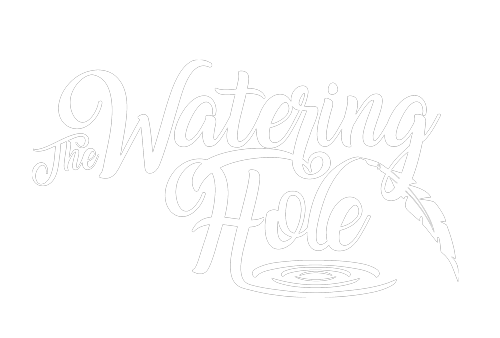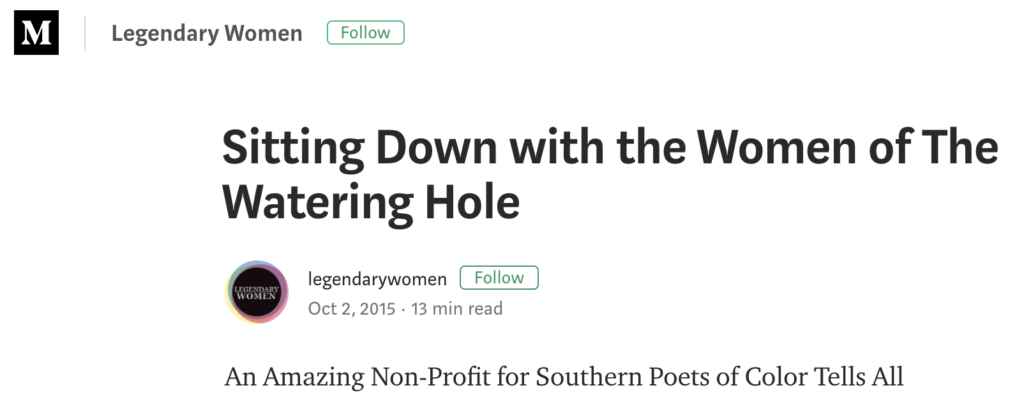A beautiful interview by Margaret Bates. Thank you, Margaret. Here’s an excerpt of “Sitting Down with the Women of The Watering Hole.”
What do you think are challenges that face both writers and performers of poetry (whether written or spoken word)?
It all comes back to craft for the stage and page poet. Poetry is so big and so diverse. There’s always something new to learn, or something old you haven’t encountered yet. It’s important for poets to read published poets and listen to performance poets. It would be crazy for a person to aspire to be a great basketball player or musician, but never watch or listen to the greats. To know Allen Iverson’s crossover, to study his technique, makes one a better baller and builds the skill a player needs to get to that next level and eventually invent some new. It’s not enough to be a writer of poetry, we must also be students of poetry. Whatever you wrote last week will always be the dopest thing you ever wrote, until you learn something new. Then it’s crap, and you are forced to grow.
What challenges do you find are more specific to getting support as an artist and poet of color?
One of the biggest challenges can be simply finding a community where poets of color are learning! Open mic venues are exactly what they say they are — performance spaces. The great thing is that poets can share their work and use the audience’s reaction to calibrate and rework portions of poems. However, that is the extent of the learning. Spaces like the MFA and academia are designed to help poets learn, but they are predominantly young, white, middle to upperclass students, and the majority favors a certain kind of aesthetic that can sometimes erase or ignore the experience or value of people of color. This is especially hard for young poets who are simply expressing and need a guide who would contextualize the work they are trying to create, in a longstanding historic, international diasporic dialogue. This can help a young poet build the necessary skill (ie. the Allen Iverson crossover). There’s a tone-deafness there that does little to help the poet develop. By tone-deafness, I do mean to point to inability and unintentionality. In those spaces, poets of color are often misunderstood or rendered incomprehensible because the cohort there have primarily been schooled in Eurocentric poetics and have little framework from which to help. Finding a community where this major barrier is removed is important. It’s like finally hearing, “You’re not alone!” and you realize there is a Tribe.

